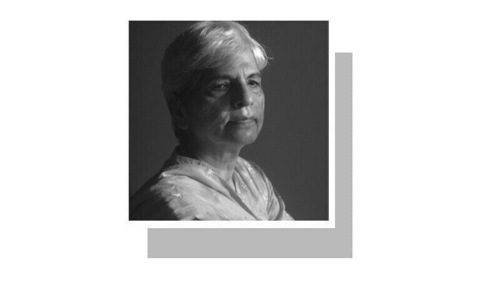
ISLAMABAD: If opposition parties do not back down at the last moment, President Asif Ali Zardari will face a tense joint sitting of parliament he will address on Tuesday to open a new parliamentary year, and probably a new chapter in his party’s politics.
All his three previous mandatory addresses to joint sittings of the National Assembly and the Senate have been a smooth affair, but things don’t seem to be going the same way this time, despite earning the unique credit of having his previously arbitrary presidential powers clipped through the landmark Eighteenth Amendment for the restoration of a genuine parliamentary democracy.
Both the main opposition parties – Pakistan Muslim League-N and Pakistan Muslim League-Q – have threatened protests for different reasons to mar Mr Zardari’s distinction of being the first president in Pakistan’s chequered political history to deliver the fourth consecutive address to parliament.
The PML-N seeks to avenge recent protests it had to face in the Punjab assembly for alleged political horse-trading to bring a breakaway “Unification Bloc” of PML-Q legislators into the provincial ruling coalition last month after parting ways with the federally ruling Pakistan People’s Party, which Mr Zardari leads as co-chairman.
The PML-N may tone down its original threat of “creating problems” during the presidential address after listening to a peace mission Prime Minister Yousuf Raza Gilani sent to opposition leader in the National Assembly Chaudhry Nisar Ali Khan at the weekend and amid natural worries over the health of party leader Nawaz Sharif, now being treated in a London hospital after undergoing what party sources described as “heart procedures”. But it had not given up the idea of protesting until late on Monday, though a final decision is due to be taken at meeting of the PML-N parliamentary party just before the start of the joint sitting at 4pm.
The PML-N stance was not much of a surprise as the party has often blown hot and cold with the PPP after walking out of Prime Minister Yousuf Raza Gilani’s coalition government only six weeks after its formation in March 2008. But the most astonishing was the decision of PML-Q elders, including party chief Chaudhry Shujaat Hussain, at a meeting in Lahore on Sunday to boycott the joint sitting altogether over a host of issues that the PPP denies to be responsible for, only eight days after the president hosted a dinner to the party’s leaders and probably offered them to join the federal ruling coalition.
The party’s grouses range from a Lahore court’s acquittal of a US spy agency operative, Raymond Davis, of the charge of double murder after the payment of a large amount of diyat and deadly US drone attacks on suspected militant hideouts in the tribal areas to the arrest of Moonis Elahi, son of former Punjab chief minister Pervaiz Elahi, over corruption charges.
Political sources said a hard stance by the main opposition parties on the solemn occasion of the joint sitting, when the president is supposed to speak about the government agenda for the next parliamentary year, could be a big blow to the PPP’s reconciliation policy that has marked three years of its government and could lead to a new chapter of political tensions between mainstream parties.
A PML-Q boycott could negate what seemed only some days ago a chance of a historic chance of the PPP making a political compromise with the former loyalists of two previous military rulers and also hit the alliance of the two parties in the Punjab assembly forged to confront the PML-N government.
But a PML-N change of mind keeps hopes alive for it to have a role in the federal government.










































